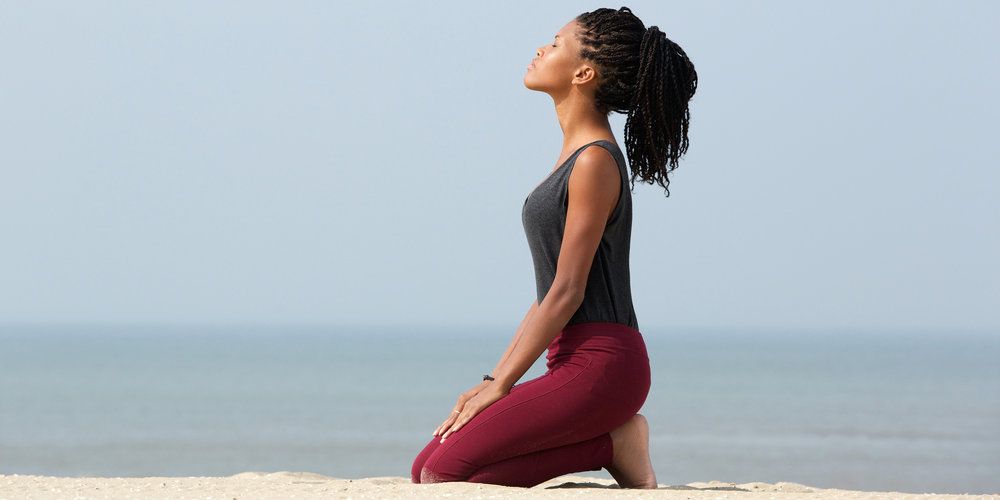On Being Split In Two: Black Women and Their Bodies

Maybe one day my body will find its way back to me. Until then I must rely on its signal flares, trembling, and gut driven intuition as a guide for processing my innerworkings. I am uncertain as to the origins of this split between spirit and skin. Did it begin or has it simply always been? However, in spite of my shaky comprehension, I know I am not the only one. In back alleys, brief phone calls, or moonlit talks parked on the side of a road in Brooklyn, we reveal things to each other. And I find I am not the only black woman who speaks of her body as a separate entity.
As I delved into the reasoning for this troubling phenomena my mind flashed back to all those times I gave my body away, unaware that it was never an object with which to barter. There was the time I promised my virginity to God. I remember looking up at the preacher, the congregation praying intently behind me, as I wished away that which no one could take from me. They gave us sterling silver rings to wear on our left hands. I bowed my head and wore that ring until I lost it in the dishwater of my first job. My ring finger still itches in that place. As I can still feel the imprint of those promises I did not say and the guilt to which I did not commit.
Despite the attempts made against it’s personal freedom, there were those moments when my body would refuse to comply. It would stand at attention in the presence of a threat. It’s skin rising in triggers, resolve forming an iron block in my chest, preventing me from moving into danger. It would remind me of the past, and never let me forget. It could read a room, and there were times I thought my body could withstand anything. After all, it had been through much in it’s short life. It’s resilience was unlike the heart which stored a vault of wounds. It would take much time to debunk this myth of separateness.
While, social shaming may seem harmless the practice often fosters a culture dishonest about it’s own yearnings. In the case of my college campus, it was apparent that while the latest sexual exploits of black women made juicy pillow talk, our sexual violations were a non priority. The most striking observations I took away were of the saliency of shame in communities of color. There is the shame that one experiences internally. In addition there is the confusion that we project onto each other. When it comes to sex, the cup of self-hate overfloweth. And we let it spill over, polluting the hearts of youth who could have otherwise had positive experiences with their bodies.
As I grow older I wonder if the union of my body with another’s will ever stop being a conversation with God, society, romantic partner, or family. Historically, black women’s bodies have been central to their commercial, sexual, and societal, exploitation. The body was denied them, and is still denied to them through legislation and inequality that makes them more vulnerable to sickness and less likely to receive treatment. Additionally, our bodies are presented as caricatures in the media, as if we are a costume to be taken on and off.
This age old traumatic wound of being represented as a body without a voice, a spirit, or inherent worth may explain why some black women are splitting themselves in two. To be in ownership of one’s body is a political act. To be a black woman in control of her own being is a protest. But maybe, some of us no longer want to be a protest. What if we do not want to be the site of such violence be it political or physical? I continue to hope in the possibility of a world in which the black body entering a room does not cut such a dramatic shape. Until then, I will honor my body. I will respect it’s calls and signals. I will claim it as my own, and let no one control it. Maybe, just maybe, it will find it’s way home.
Photo Credit: Shutterstock

No comments: